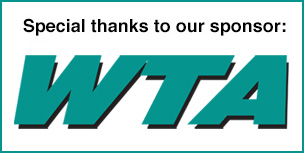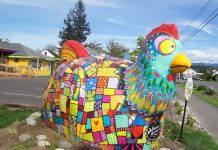Bellingham is home to many proud members and allies of the LGBTQ+ (Lesbian, Gay, Bisexual, Transgender, and Queer) community. Since the liberation movement for sexual and gender minorities began, the city has seen community and student advocacy for acceptance and equality.
LGBTQ+ people have always existed, even as language has evolved. As BellingHistory blogs on LGBTQ+ history note, Bellingham’s vaudeville culture from the 1890s through 1910s prominently featured drag performances. “Female impersonators” of the era included “Gay Deceiver” Mansel Vardaman Boyle, “Huntress” Harry Hemphill, Julian Eltinge, and Joseph Noel. (In 1993, vandals removed a Fairhaven historic marker reading “Mr. Noel Wore a Dress and Welcomed the Guests.”)
The modern LGBTQ+ movement in America started with the 1969 Stonewall riots in New York City. On Stonewall’s anniversary in 1970, the first Pride marches articulated the power of resisting shame resulting from social stigma and of celebrating human diversity. Rights movements in Bellingham and other cities nationwide quickly followed suit.
The Center for Pacific Northwest Studies (CPNWS) at Western Washington University has documented local LGBTQ+ history in the Gay and Lesbian Miscellaneous Manuscript Collection (1972-2012). These publications reveal how LGBTQ+ people in Bellingham found their voices in a local and global movement.
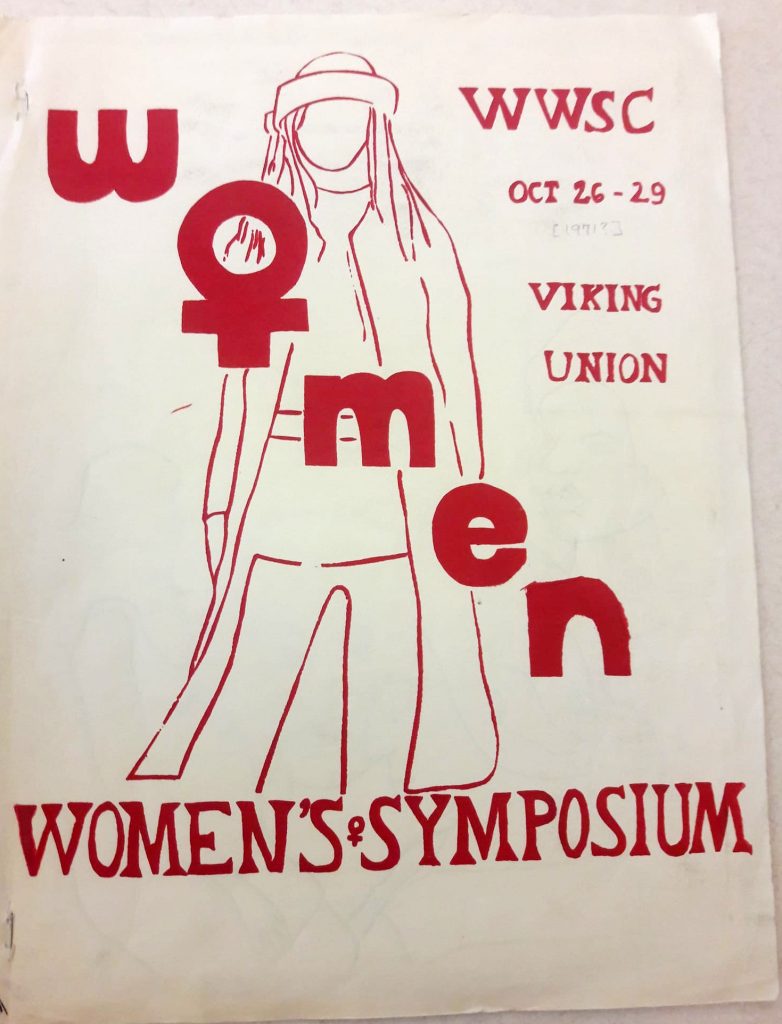
Bellingham LGBTQ+ Advocacy
WWU’s early-1970s “Women’s Symposium,” “Gay Pride Week,” and “Gay Awareness Symposium” were among Bellingham’s earliest Pride events. These featured lectures, workshops, poetry readings, and other performances for several years.
“The gay experience is most often a very beautiful experience,” Valerie J. Bailey of WWU’s Gay People’s Alliance writes. “I hope I can show the positive aspects (at least positive as I see it) of the gay subculture so that straights will know what we can say with such confidence that Gay is Good! After all, as many say in the movement, ‘Homosexuals are just like everybody else — only more so.’”
In the 1970s, lesbian-inclusive women’s organizations emerged in Bellingham. The Blackwell Women’s Clinic started at Fairhaven College, providing healthcare training from 1973 to 1981. The Womencare Shelter, founded 1979, supports victims of domestic violence into the present. Both initially organized meetings at the YWCA.
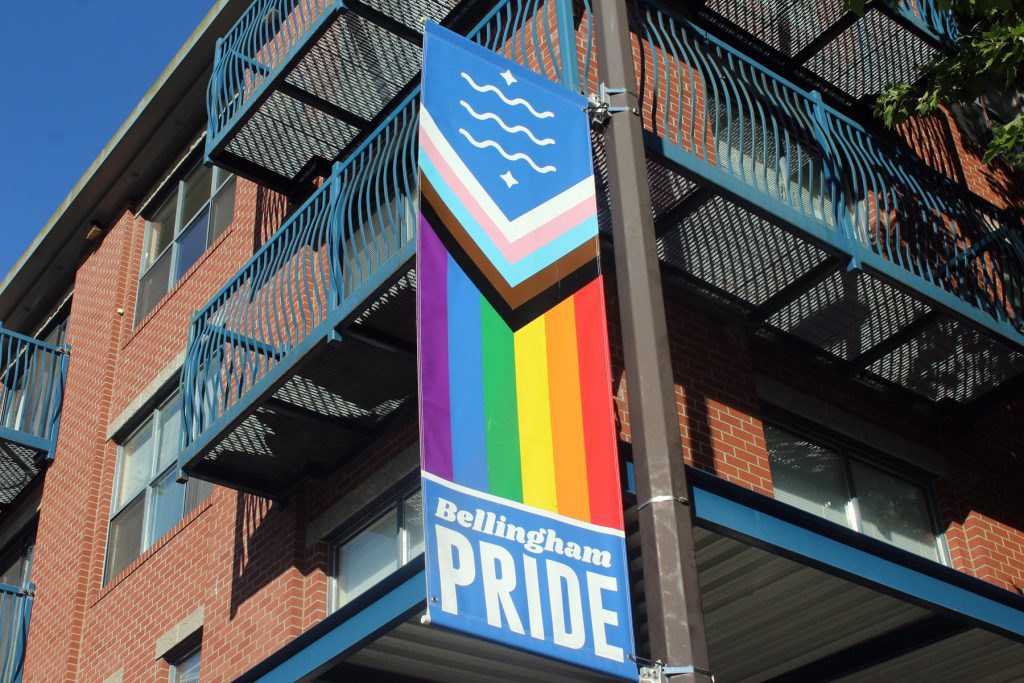
During the AIDS crisis of the 1980s, the Evergreen AIDS Foundation (founded in 1987) provided healthcare and support services. They reported that an estimated 600-800 people in Whatcom County had HIV/AIDS in 1996, and their “Friend to Friend” workshops provided risk reduction and communication strategies. Today, the organization continues as Lifelong. From 1995 to the present, Sean Humphrey House has provided residence, meals, and other support services for low-income adults living with HIV/AIDS.
As conversations on same-sex marriage and discrimination entered the national stage, Whatcom County gained its own chapter in the country’s first statewide LGBTQ+ rights organization: Hands Off Washington (HOW). From 1993 to 1997, this coalition opposed initiatives intended to legalize discrimination and prohibit same-sex marriage. HOW’s community engagement, fundraising, and education prevented these from reaching the ballot. They proposed initiatives to ban employment discrimination, which did not pass but influenced Washington’s present anti-discrimination laws.
Same-sex marriage became legally recognized statewide in 2012 and nationwide in 2015.
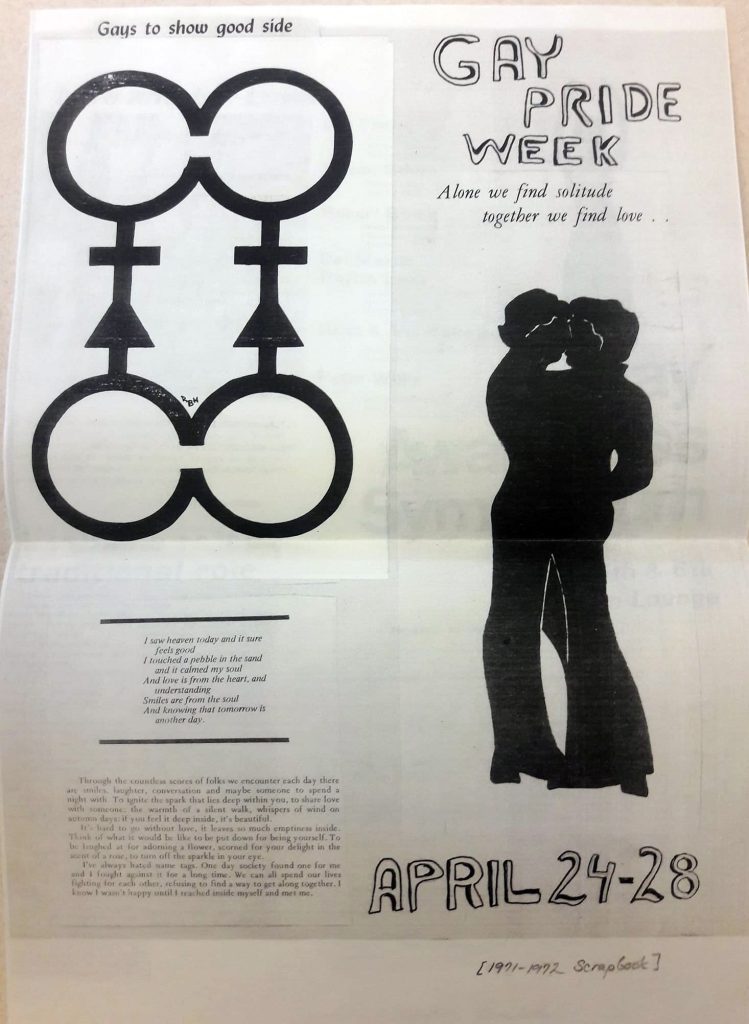
LGBTQ+ Cultural Expression
Since its early symposiums, WWU continued to host artistic and educational LGBTQ+ events such as the Pacific Northwest Women’s Music and Cultural Jamboree (1991-1994). This event featured “women’s music, comedy, workshops, movies, crafts and activities” — including lectures, workshops, and LGBTQ+ reading lists by university faculty. WWU hosted a Women’s Resource Center, LGBT Resource Center, and publications such as Labyrinth that shared essays and resources.
In the wider community, lesbian newsletter The “L” Word ran from 1994 to 1996. Each edition featured essays, news, art, “Java Jane” advice columns, and “Rosie’s We Can Do It” instructions on household tasks.
From 1990 to 1993, the “Lesbian Coffeehouse” met monthly at Fairhaven Park, Bloedel-Donovan Park, and the YWCA. They shared advocacy resources and presented singers, artists, and open mic performances.
Drag performances by the Imperial Sovereign Court of the Evergreen Empire date back to 1996. Their programs advertised Rumors Cabaret, Evergreen AIDS Foundation, Great Northern Books, and LGBTQ+ coffeeshops and film screenings.
In the 1960s and ’70s, Bellingham’s LGBTQ+ inclusive venues included bars such as the Toyon and The Hut. In 1984, the Toyon became Rumors Cabaret — which has sponsored events such as Bellingham Pride into the present. Its cocktail lounge, “The Back Door,” is named for the bar’s history of protecting closeted patrons’ identities by letting them leave out the back door.
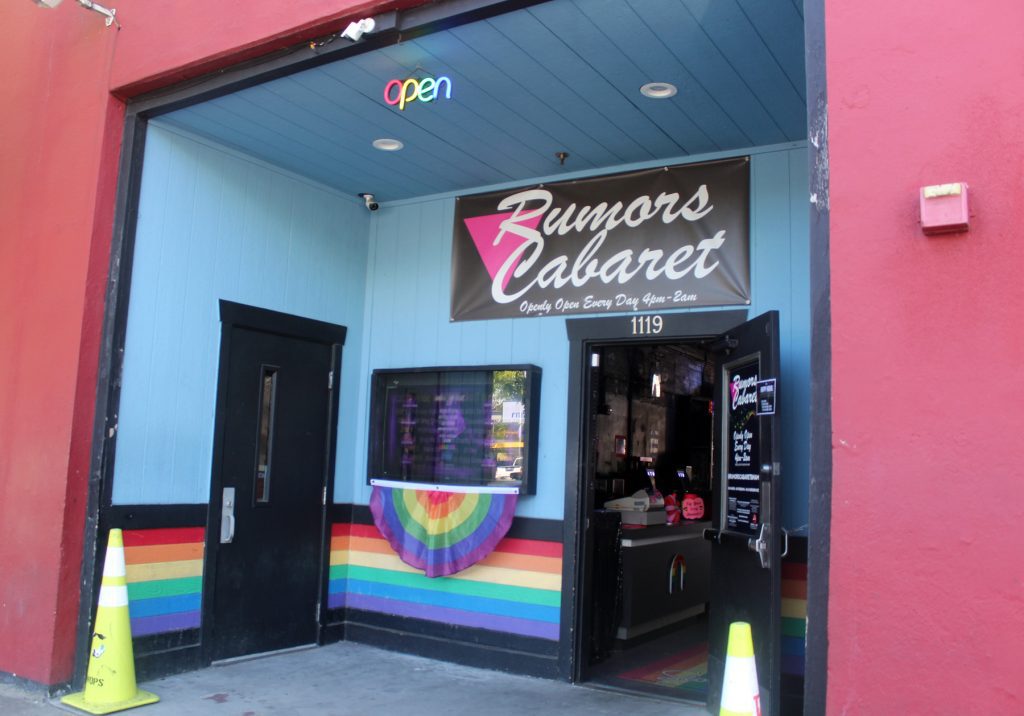
Out in Bellingham Today
Bellingham’s first citywide Pride festival started with six picnic tables at Fairhaven Park in 1999. Today, Whatcom Pride and Pride IN Bellingham host events with thousands in attendance every July — one month after Seattle’s parade so that community members may attend both.
In recent decades, identities such as pansexuality, asexuality, nonbinary genders, and intersex have gained more visibility. A 2012 Western Front article describes how student group “Western Cake” formed based on advocacy by organizations such as the Asexual Visibility and Education Network (AVEN).
Washington State LGBTQ Commission lists resources for inclusive healthcare, youth support, legal assistance, education, and social groups. Each local step brings us closer to a more inclusive society.
Featured photo credit: Robert Ashworth/Wikimedia Commons/CC-BY-2.0






























